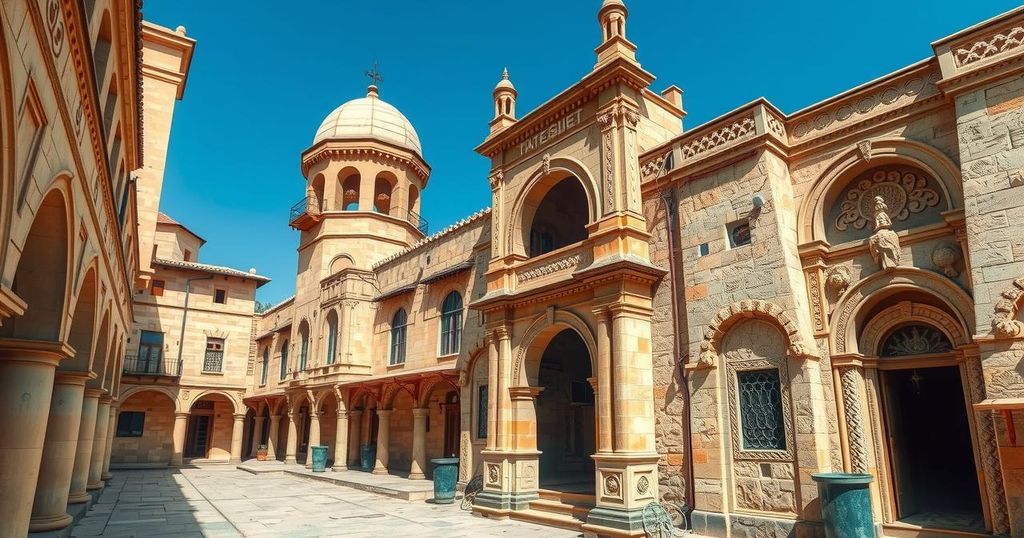Syrian President Meets U.S. Congress Member in Historic Visit
Syria’s President Ahmad al-Sharaa welcomed U.S. Congressman Cory Mills in the first official visit by American legislators since Bashar Assad’s ouster. Mills and fellow Congressman Marlin Stutzman toured Damascus historic sites and voiced support for lifting sanctions. Stutzman emphasized the need for U.S. acknowledgment of changes in Syria and advocated against returning to dictatorial governance. The U.S. has eased certain sanctions for humanitarian aid, though tensions regarding minority rights persist.
On Saturday, Syrian President Ahmad al-Sharaa welcomed Republican Congressman Cory Mills from Florida in a significant unofficial visit, marking the first instance of U.S. legislators visiting Syria since Bashar Assad’s removal from power last December. Syrian state media, SANA, did not disclose details of their discussion, which also involved Syrian Foreign Minister Asaad al-Shibani and occurred amidst calls for the lifting of sanctions imposed by the U.S. and its allies during the conflict.
During their unofficial visit beginning Friday, Congressman Mills and his colleague Representative Marlin Stutzman from Indiana toured various sites in Damascus, including the historic old quarter and the Ashkenazi Synagogue, which suffered damage during the ongoing civil war that has resulted in over half a million fatalities. On Saturday, Representative Stutzman visited the infamous Saydnaya Prison, where numerous individuals faced atrocities under the Assad regime.
Al-Sharaa’s group, Hayat Tahrir al-Sham, played a pivotal role in capturing Damascus in December, which led to Assad and his family seeking asylum in Russia. Subsequently, the Biden administration decided not to pursue a $10 million reward for al-Sharaa’s capture, following his meeting with Barbara Leaf, the then top U.S. diplomat for the Middle East. Since then, the Trump administration has not recognized the new Syrian government or lifted any of the heavy sanctions imposed during Assad’s rule.
Following his visit to the prison, Rep. Stutzman shared with reporters observations of a renewed sense of energy and optimism among the Syrian populace. He emphasized the importance of U.S. awareness regarding Syria’s political changes, asserting that lifting sanctions would significantly benefit the economy. Stutzman noted, “As a member of Congress, I can go back home and… tell the story of the changes that are happening in Syria and we want to be here to support that.” He expressed a desire for democratically oriented governance in Syria, warning against a potential return to dictatorial rule.
Amidst the evolving political landscape, the U.S. has permitted limited transactions with the Syrian government to facilitate humanitarian aid, issuing a six-month general license for specific transactions. However, U.S. demands for protecting the rights of religious and ethnic minorities remain a barrier to lifting sanctions, which Syrian officials insist will foster better conditions in the country. Stutzman conveyed his understanding of why many support lifting the sanctions, labeling it as beneficial for the Syrian populace.
The visit by U.S. Congress members to Syria represents a critical step in U.S.-Syrian relations post-Assad. While Congressional representatives express optimism about the changes in Syria, they acknowledge the complexities of sanction policies tied to the country’s new leadership. The ongoing dialogue around the lifting of sanctions will hinge on the protection of minority rights, reflecting the intricate balance between diplomatic engagement and humanitarian considerations.
Original Source: www.seattletimes.com




Post Comment